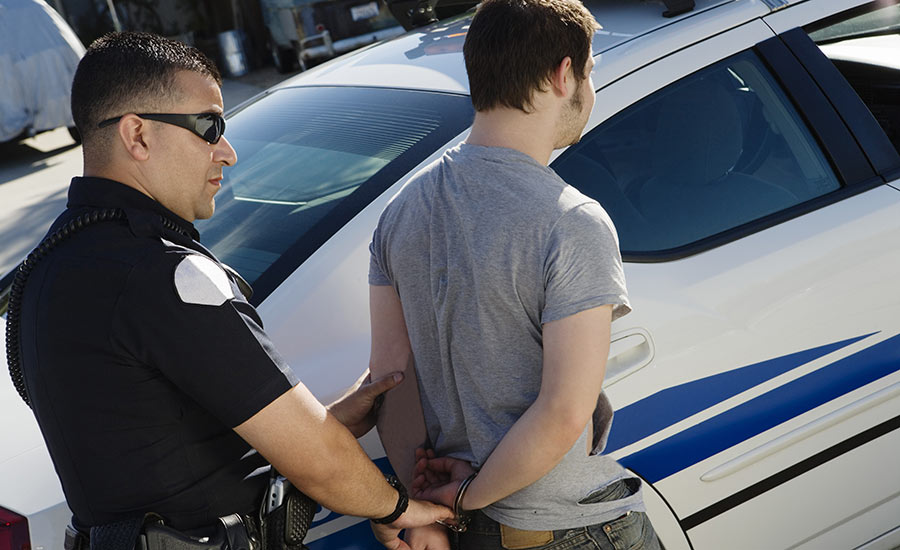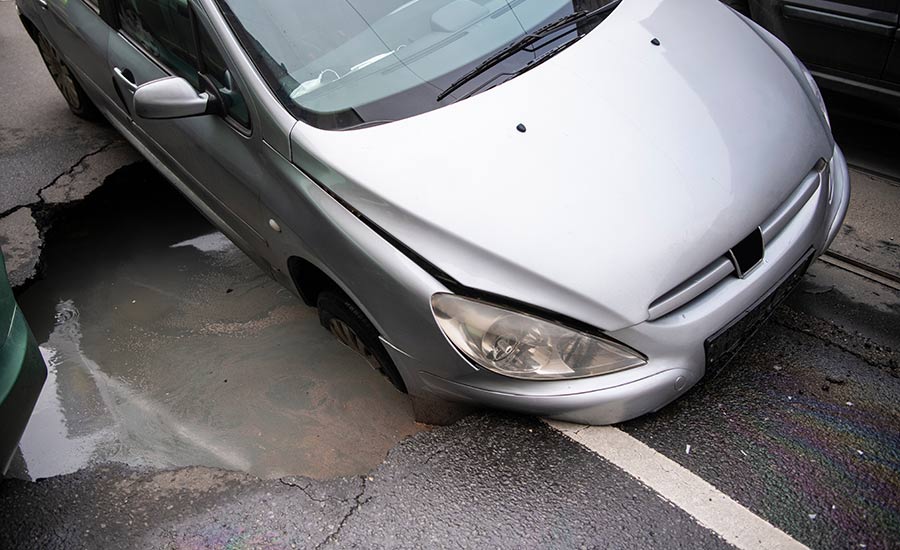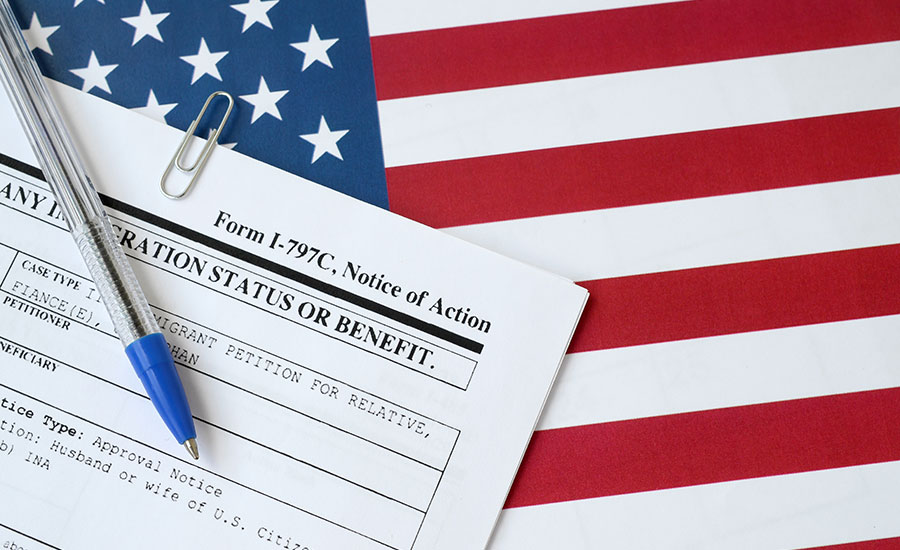

Both scary and traumatizing, a wrongful arrest can have serious consequences, including physical, psychological and emotional scars.
If you or someone close to you were wrongfully arrested, you might be wondering what to do next.
Can you sue police for wrongful arrest? That’s what we’re here to cover.
We’ll explain how your behavior during and after a wrongful arrest can affect next steps, which parties you can hold responsible and how our law firm, Spar & Bernstein, can help with your lawsuit
What Is A Wrongful Arrest?
A wrongful arrest, also known as false or unlawful arrest or false imprisonment, is the unlawful restraint of a citizen by police, without legal justification and against their will.
Legal justification or authority means that police must have:
- A probable cause for restraining the person, and/or
- A valid arrest warrant
If you are arrested without probable cause and without a warrant, you may have a case against the police for wrongful arrest.
Can You Sue Police For Wrongful Arrest?
Yes — because a false arrest is treated as a misdemeanor offense, you may have the right to sue the police if you were unlawfully restrained. If you win your lawsuit, the liable parties will be charged with a misdemeanor.
If you were wrongfully arrested, you might have a case against:
- A police department
- A police officer personally, whether they detained, transported, processed, charged or cared for you during your detention
- The company that detained you
- The security agency that detained you
If you suffered injuries during the arrest, you can file an additional lawsuit for physical or mental abuse, or use of excessive force.
Because police in the United States are considered a government agency and have sovereign immunity shielding them from lawsuits, you will need to prove that they violated your “rights, privileges, or immunities” as per 42 U.S. Code § 1983 in order to file your lawsuit(s).
To sue police for a false arrest, you must prove that:
- The police intended to detain you and did so
- You were aware that you were being detained
- The police detained you against your will
- Your detention was not legally justified
Keep in mind that if you go voluntarily to a police station for questioning, it is not considered detention or restraint.
A wrongful arrest should not be confused with a situation in which a person is restrained with a valid warrant that was obtained due to fabricated statements, of which the police had no knowledge. In this case, you do not have the right to sue the police, because they believed they had a valid warrant at the time of the arrest.
To sue police for wrongful arrest, you will need to partner with an experienced personal injury law firm. With 50 years of experience, our tenacious attorneys at The Law Offices of Spar & Bernstein have successfully settled thousands of lawsuits, including those against law enforcement.
If you were wrongfully arrested, our team will review your case and first determine whether there are grounds for a lawsuit, then explain your options and recommend next steps.
Our experienced attorneys ay Spar & Bernstein will determine whether you have a case against the police, and if so, we will help you file your lawsuit and fight for compensation on your behalf
Who Else Can Be Held Liable For False Arrest?
A police department or a police officer may not be the only parties you can sue for wrongful arrest.
Other liable parties can include private security guards, if the security guards restricted your freedom to move under the suspicion of theft, without having evidence.
In this case, you may have the right to sue:
- The security guard
- The security guard’s employer
- The company that owns and runs the establishment, if different from the security guards employer
Some states grant shopkeepers the right to detain a person they suspect of theft, under what is known as shopkeeper privilege. However, in order to detain a shopper, shopkeepers must:
- Witness the theft in real time, on a security camera or in person
- Detain the shopper for a short period of time to conduct a brief investigation and wait for the police to arrive
- Use force only if needed to detain the shopper until the arrival of the police
If you believe you were wrongfully arrested by a party other than police forces, contact our trusted legal team at Spar & Bernstein.
We’ll review the details of your case and help you determine liability.
What To Do During & After A Wrongful Arrest
While it can be incredibility stressful and happen quickly, if you are wrongfully arrested:
- Provide police officers with your identification if requested
- Remain silent — if you say anything, it can and may be used against you in court
- Do not resist or argue with law enforcement officers
- Do not admit to any wrongdoing
- Make note of any witnesses or evidence that may help your case, such as surveillance cameras in the area
- Call a trusted attorney to help prove your innocence and file a lawsuit against the responsible parties
After a wrongful arrest, there are different options you can pursue. You can:
- File a lawsuit against the police department or the officer with a demand for an injunction
- File a lawsuit to seek compensation
Our attorneys at Spar & Bernstein will explain your options and help you identify the best course of action.
From filing a complaint with the police department to seeking compensation by filing a lawsuit, there are several legal options if you were wrongfully arrested
Have You Been Wrongfully Arrested? Contact Spar & Bernstein
At Spar & Bernstein, we understand the lasting effects that a false arrest can have on your personal and professional life, and we’re passionate about fighting to protect your rights as you heal.
If you were wrongfully arrested, we will help you identify the parties at fault and file a lawsuit to seek compensation for the damages — the same way we care for victims in motor vehicle, construction and slip and fall accidents.
Whether you were restrained unlawfully or injured during a wrongful arrest, our experienced attorneys are here to help.
From collecting evidence to filing all documents needed, we will work tirelessly to build a strong case on your behalf, keeping you informed about the progress every step of the way.
FAQs About Suing For False Arrest
Still have questions about false or wrongful arrests and lawsuits? Find answers below or contact our attorneys to schedule a consultation.
1. How long do you have to sue police for wrongful arrest?
The statute of limitations for suing police for wrongful arrest may vary by state. In New York, for example, you have one year and 90 days to sue a government agency, including police, after the event took place.
However, if you are falsely arrested and charges are brought, the statute of limitations does not begin to run until and if the charges are dismissed and/or you are found not guilty.
2. Can you file additional lawsuits on top of a wrongful arrest lawsuit?
Yes — depending on the circumstances, you may have the right to file multiple lawsuits against the police. For example, if police used excessive force during your wrongful arrest, you may be able to file one lawsuit for two causes of action, for wrongful arrest and excessive force.
Talk to our attorneys at Spar & Bernstein to explore your options.
3. Can a false arrest occur if there is a warrant involved?
Yes — if the arrest warrant is not valid. An arrest warrant may be invalid if:
It does not properly identify you or include your name
It does not include information about why you are being arrested
It does not include information about the court that issued the warrant
Police obtained the warrant by lying to the judge about probable cause or fabricating evidence or other information
4. What damages can you claim for wrongful arrest?
After a wrongful arrest, you may have the right to claim:
Economic damages, such as medical bills, lost wages and loss of earning potential
Non-economic damages, such as pain and suffering, loss of enjoyment of life, mental anguish, loss of companionship and the amount of times you had to go to court for your case
Our experienced team at Spar & Bernstein will fight for fair compensation for the damages you suffered as a result of your false arrest.
5. What is the average payout for a wrongful arrest?
The payout for a wrongful arrest case varies widely. The amount depends on several factors, such as how long you were detained, how many court appearances you were required to make, the probable cause that was alleged, whether you suffered injuries, how severe those injuries were and how your injuries might influence your life in the future.
At Spar & Bernstein, our attorneys will fight for maximum compensation on your behalf.
6. How are police officers punished for a wrongful arrest?
Punishments for police officers after a wrongful arrest vary by state. In general, a police officer who commits a wrongful arrest may be suspended, fired or required to attend retraining courses.
7. What should you do if you are not sure you have a wrongful arrest case?
If you are not sure whether you have a wrongful arrest case, contact our experienced attorneys at Spar & Bernstein.
We will review the details of your situation from all angles, identify the responsible parties and help you plan your next steps.
8. Do you need to hire a lawyer for a wrongful arrest case?
Building a case against the police is a complex matter requiring deep knowledge and understanding of state laws, deadlines and legal processes.
An experienced law firm, like Spar & Bernstein, will help you determine liability, gather evidence, file your lawsuit(s) and seek maximum compensation for your injuries or damages.





